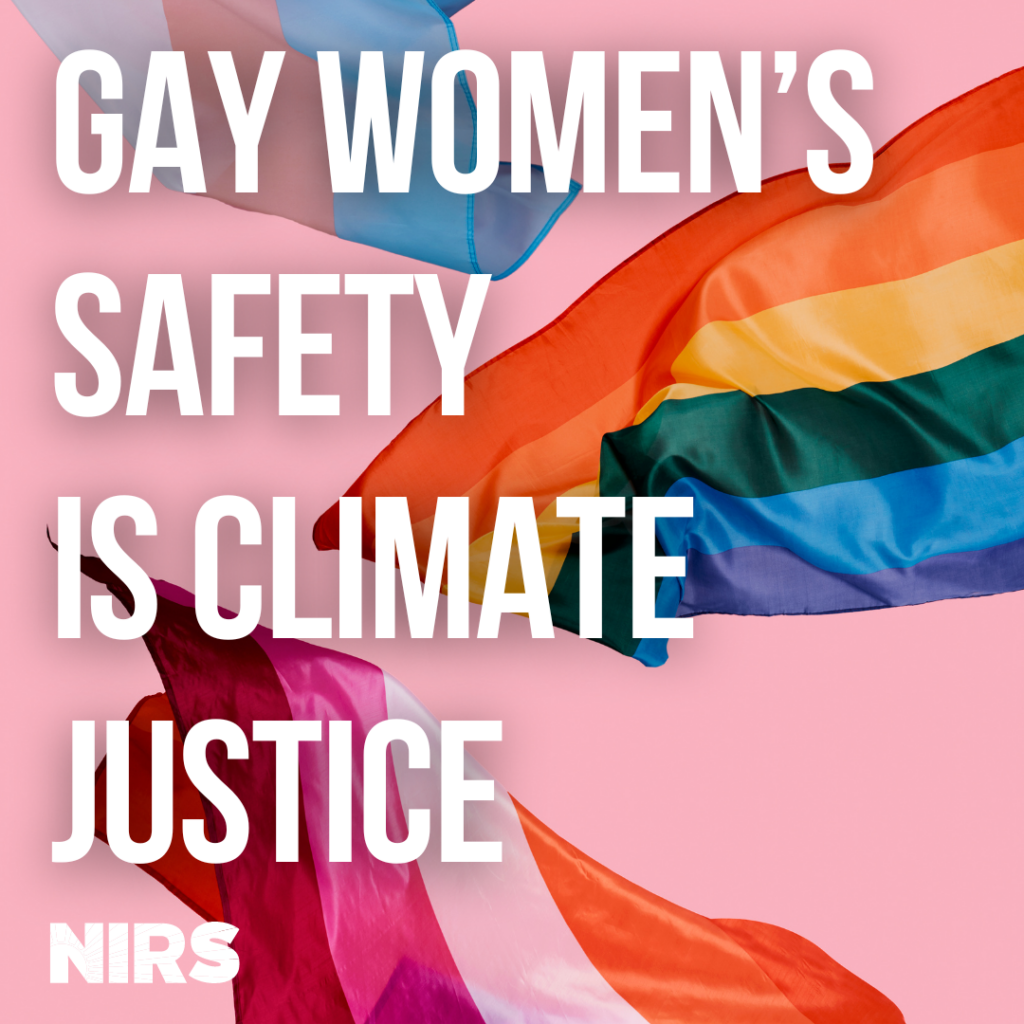
Lesbian households do and will continue to bear the brunt of the climate crisis and the wildly inflated costs of utility billing in the US, and as such must be at the frontline of our understanding of how to protect these frontline communities in our engaged activism. It is common understanding that women (and this varies by race as well) earn on average, much less than the white, male dollar in the workforce. This ratio is especially bad if you are Black or Latina or Indigenous. If we take this understanding a step further, we see that lesbian households (households with two women, and presumptively no men, as the wage earners) are at a severe financial disadvantage when it comes to protecting themselves from costly heatwaves, cold snaps, and other such climate change-related weather issues that impact the cost of already exorbitant energy bills.
According to an article in Feminist Economics, “Same-sex male couple households had a lower poverty rate than different-sex married couple households (3.9 percent), but lesbian-led households had a higher rate (6.6 percent).” (Schneebaum) At nearly double the poverty rate, lesbian households will be at the frontline of economic disparities as the climate crisis and the greed of utility companies continue to steamroll society. We see these disparities worsen with age, race, and socio-economic standing as well. According to the Center for Social Policy Standings, “Lesbians who are 65 or older are twice as likely to be poor as heterosexual married couples[,]” and that “[Black] Americans in same-sex couples have poverty rates that are significantly higher than [B]lack people in different-sex married couples and are roughly three times higher than those of white people in same-sex couples.” (Albeld, Badget, Schneebaum, and Gates) This intersection of race, gender, and sexuality is exactly what puts lesbian communities, particularly poor, Black lesbian communities, at the front line of the climate crisis. This intersection only worsens when we take into account disabilities, invisible and not, as well as access to higher education and well-paying jobs. A Black lesbian household in the rural South is significantly more at risk of dying from heat stroke due to global warming conditions and an inability to keep up with rising utility costs. Even here in California, many are already feeling the crunch in mid-June as we run our A/C to keep ourselves, children, and pets comfortable at the detriment of our already stretched-thin paychecks–and personally, as a two-female household, we are especially likely to have less of that paycheck to even stretch.
“A 2019 survey by UCLA Law School’s Williams Institute found that 17.9 percent of lesbian cisgender women […] lived in poverty, compared with […] 13.4 percent of straight cisgender men[,]” (Bleiweis et al., 2020) so if we know this to be true, by the UCLA study’s standards nonetheless, we must actively increase our understanding as activists of these intersections of discrimination that put lesbian women at the heart of the climate crisis in a way that is rarely talked about. We must advocate, in the most direct terms, for Energy Democracy in communities, for wage equity among women, especially lesbian women of color, and we must keep these communities at the forefront of our fight for protection and overall equity.
Climate change is not coming, it is here, and we are all seeing its effects–from hurricanes to heatwaves to snow storms–we cannot deny that this climate catastrophe is leaving the most vulnerable behind, oftentimes with wrecked homes or loved ones in hospital beds. This Pride month, I just especially ask that we take a more nuanced look at who will be left behind in society and who will be saved. Lesbians stood up when another crisis hit our community in the 80s and took the forefront of protection against our gay brothers dying of HIV/AIDS, it’s time we stand up for lesbians in the climate crisis now.
Works Cited:
Albelda, Randy, et al. Poverty in the Lesbian, Gay, and Bisexual Community. Center for Social Policy Publications, 2009, https://scholarworks.umb.edu/csp_pubs/34.
Bleiweis, R., Boesch, D., & Cawthorne Gaines, A. (2020, August 3). The Basic Facts About Women in Poverty. Center for American Progress. https://www.americanprogress.org/article/basic-facts-women-poverty/



